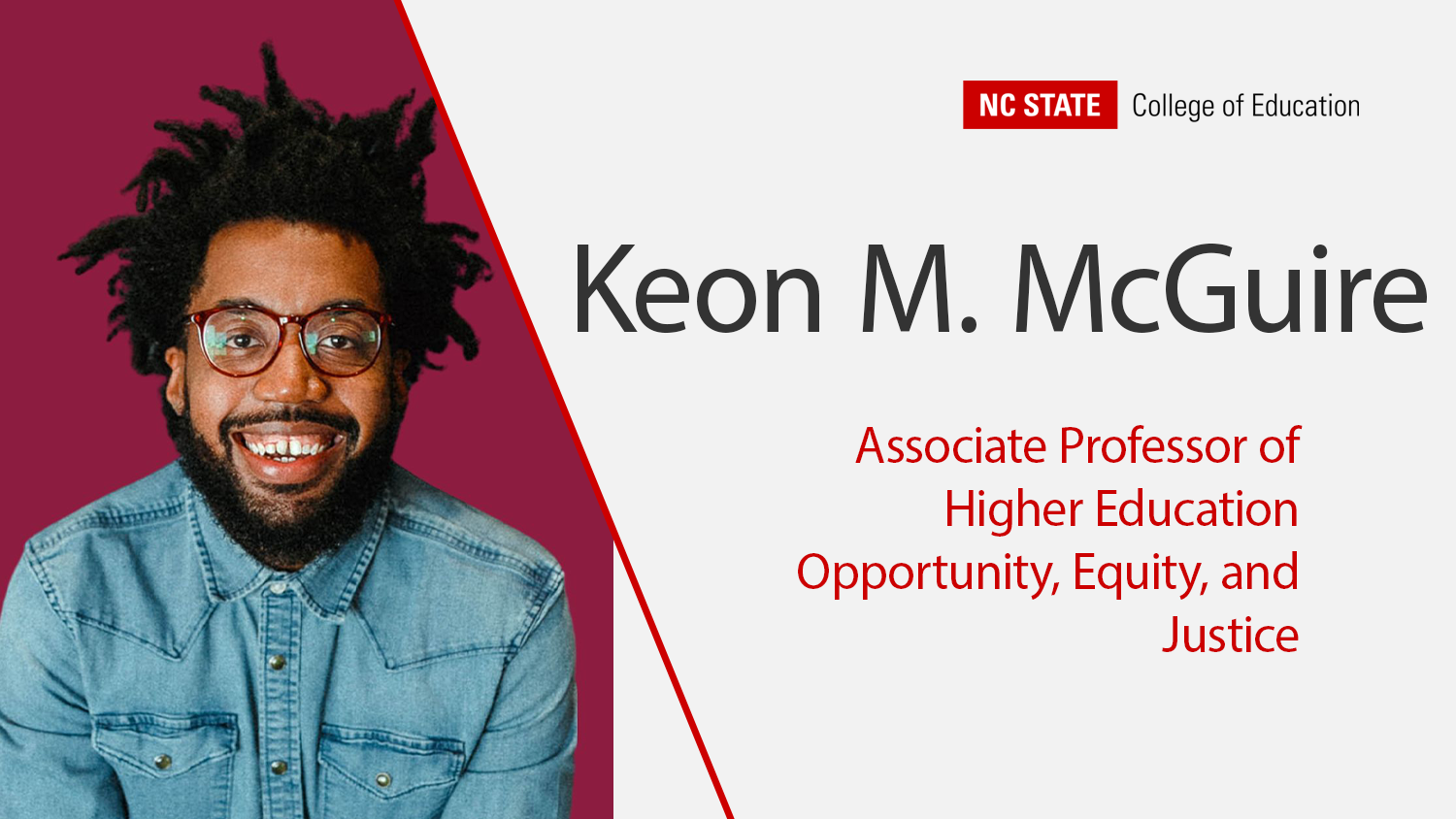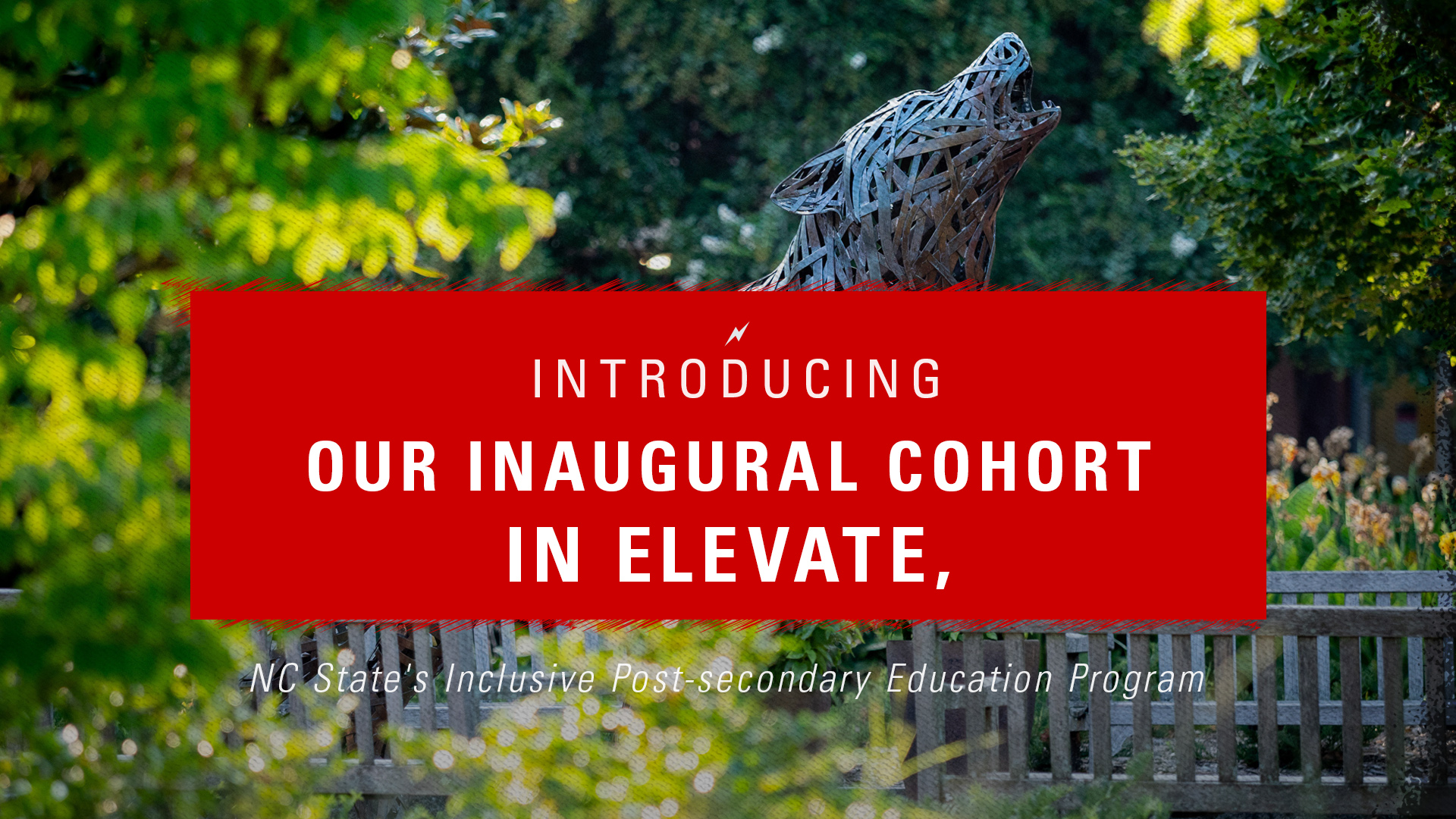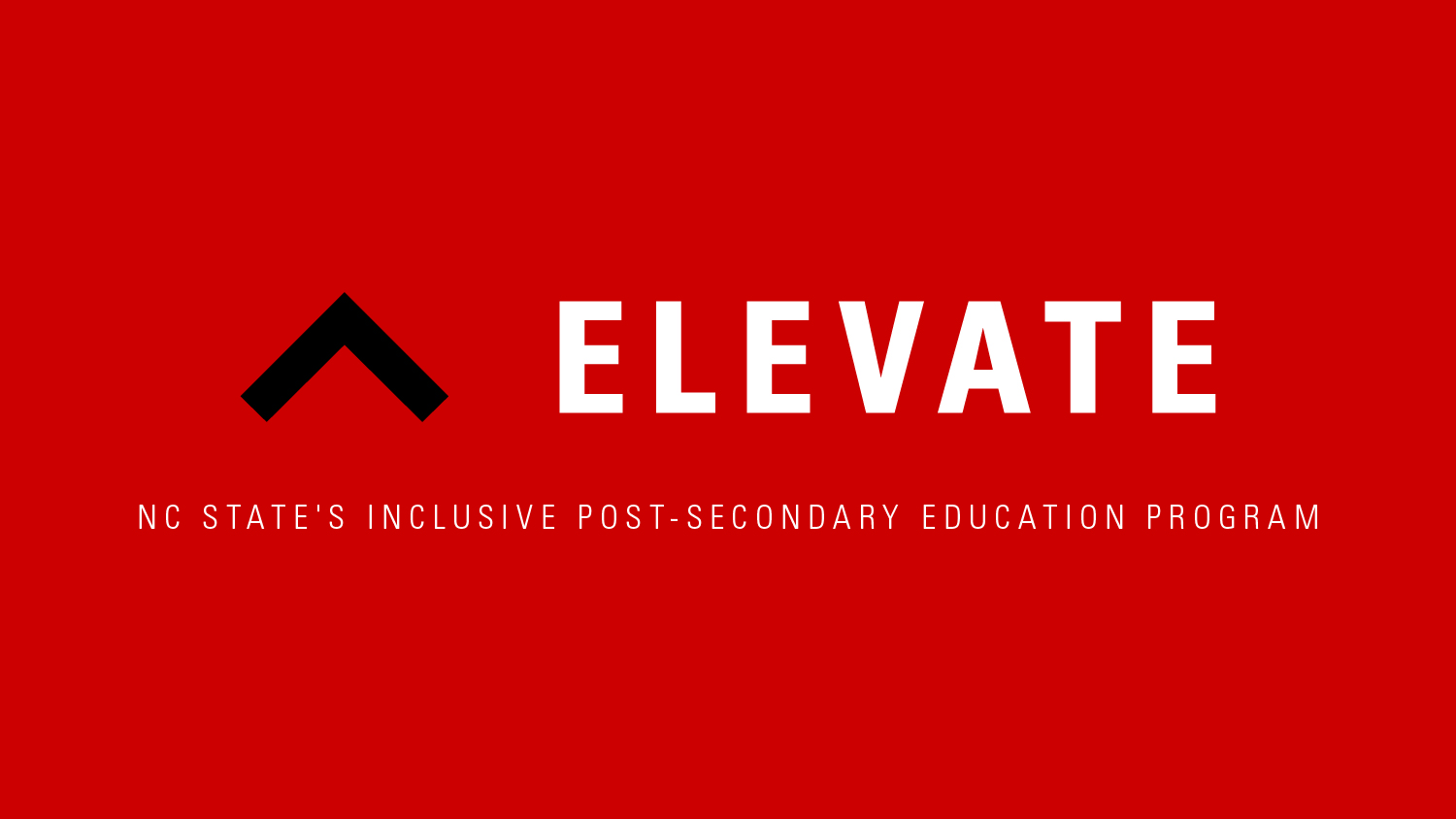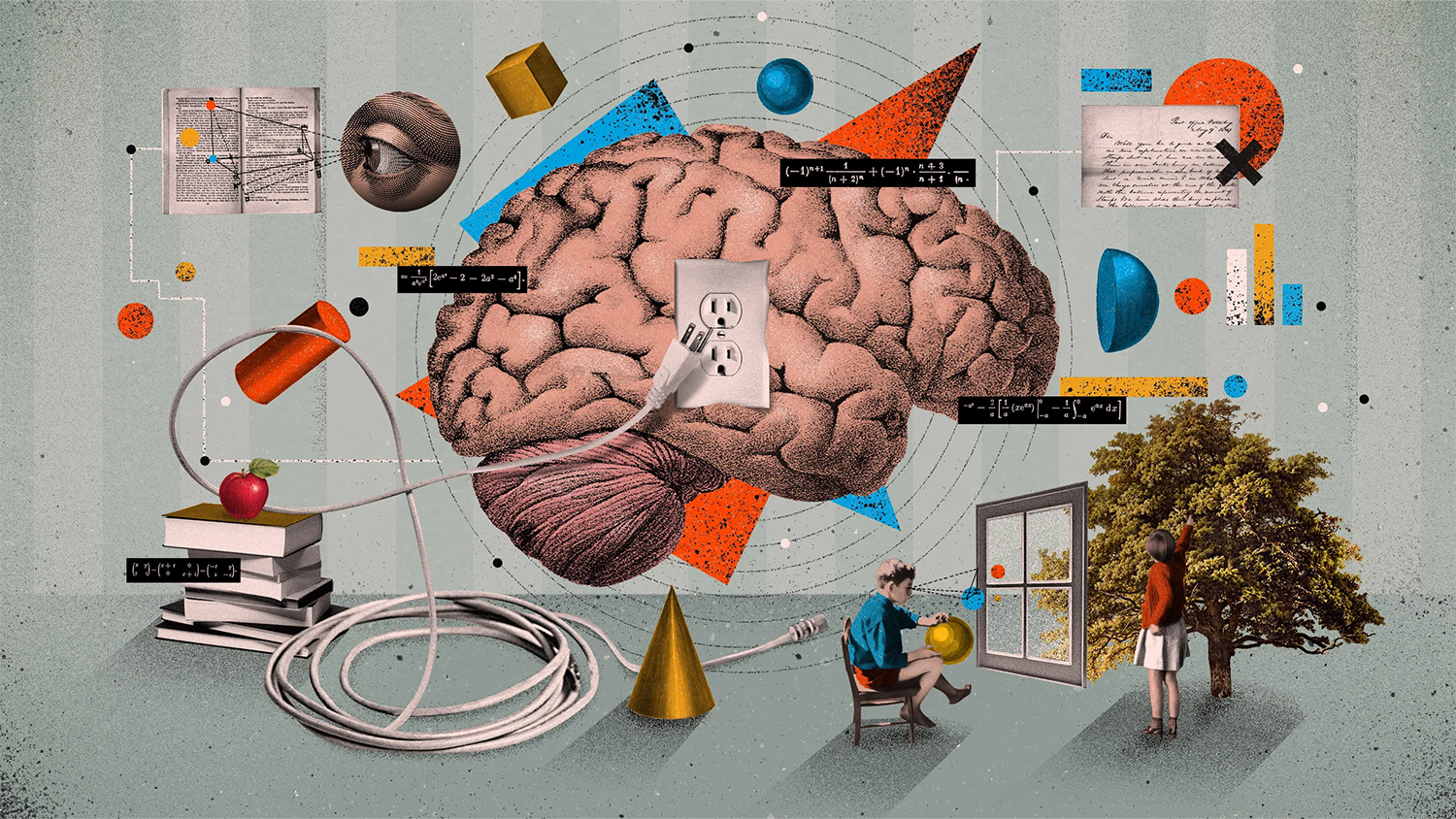Keon M. McGuire will join the NC State College of Education in the 2023-24 academic year as an associate professor of higher education opportunity, equity, and justice.
McGuire previously served as an associate professor of higher and postsecondary education in the Mary Lou Fulton Teachers College at Arizona State University, where he was also a faculty affiliate with the School of Social Transformation.
Learn more about McGuire below:
Why did you choose a career in education?
I chose a career in education — higher education in particular — because of the impact college and university life and learning had on me. It was a space that opened both literal possibilities and figurative worlds that were generative in ways that I could not anticipate.
What inspired you to pursue a doctoral degree?
Quite simply, it was the encouragement, support and incredible mentorship of educators who saw something in me that I did not see in myself at the time. Namely, Dr. Barbee Oakes, Dr. Kendra Stewart-Tillman and Mrs. Darlene Starnes — the heart beat of Wake Forest University’s Office of Multicultural Affairs — who guided me toward doctoral aspirations.
What are your research interests?
My research focuses on the ways race, religion and gender shape college students’ educational experiences and everyday lives. I am also interested in ways that colleges and universities can engage in equitable and socially just practices to ensure the success of all students. This might materialize in studies that focus on the experiences of Black Muslim college students or Black spiritually and religiously diverse students pursuing STEM degrees.
What sparked your interest in those topics?
My interests, in part, are anchored in my own educational biography. In some small way, it is my attempt to make sense of my experience — as well as others who share similar backgrounds — across the educational institutions I have attended.
What is one moment or project in your academic career that you are particularly proud of?
At the moment, it is my ongoing work alongside Black college men to understand how engaging with Black feminist and queer people of color perspectives might inform our masculinities. It is the most challenging and quite often demanding project that I have engaged with. I have said elsewhere about this project, “I’ve always wanted my work to have a meaningful impact and be relevant to [communities] that have given me so much.” This remains true today.
What is your teaching philosophy?
I believe in teaching in a way that is rooted in love and joy and, when I’m at my best, is most responsive to the individual students who I am in a learning community with.
What do you hope your students learn from you?
To be infinitely curious. That the true work of education is often personal, first and foremost. And, as my good friend and colleague Dr. Jonathan Berhanu says, “We all reserve the right to change our mind.”
What do you believe makes someone an extraordinary educator?
I think the words of author and MacArthur Genius fellow Kiese Laymona have been very instructive for me. He talks about having access to “healthy choices, second chances and good love”. To me, an educator that is able to do their best to offer this to learners of all ages carries the mark of an extraordinary educator. I have had the great fortune of knowing so many.
- Categories:



